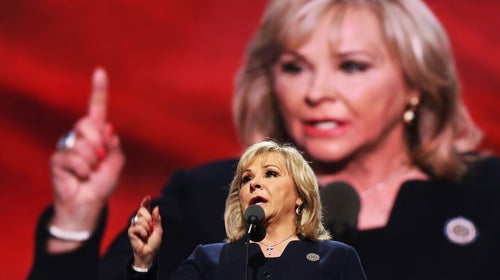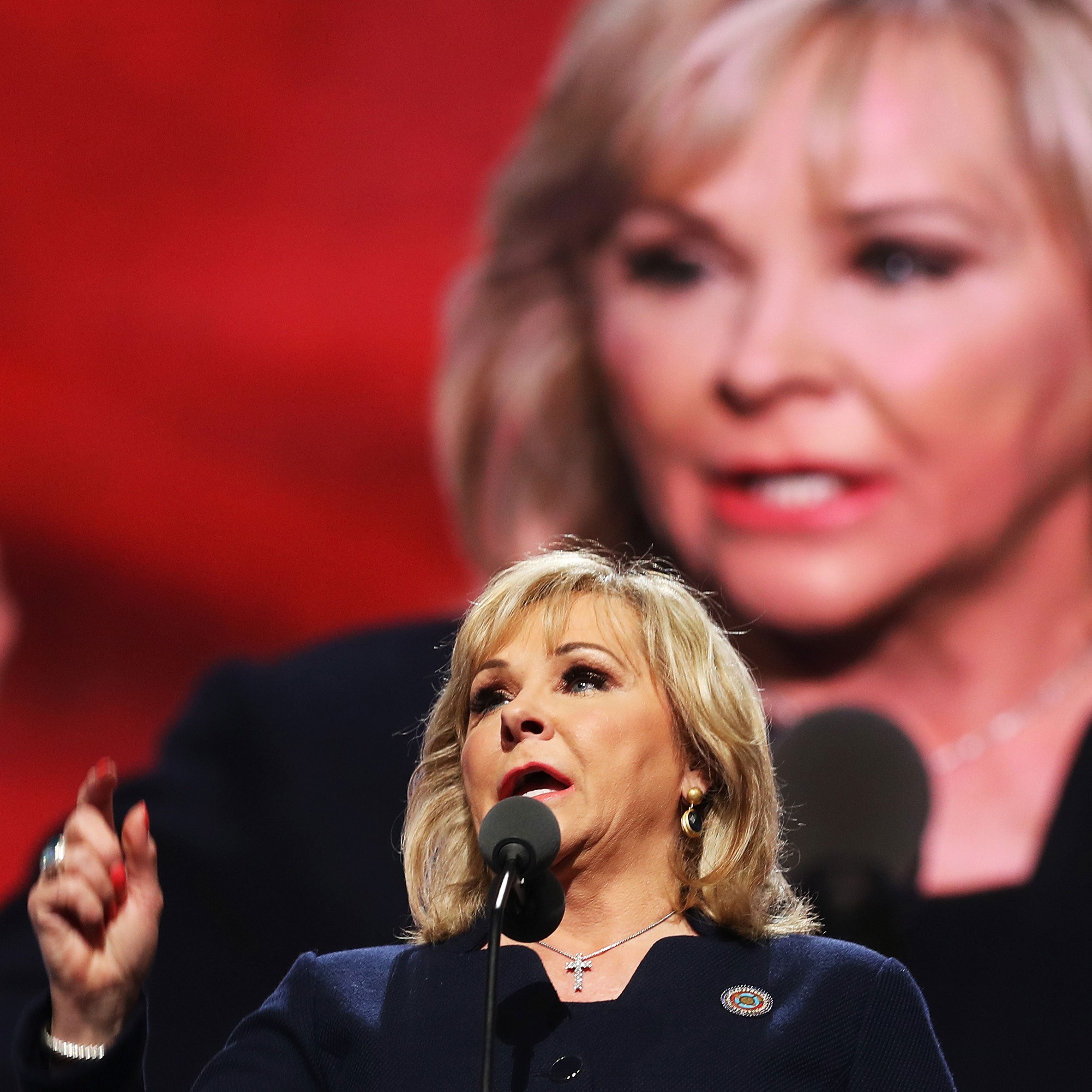Governor Mary Fallin of Oklahoma, a vice-chair of the Trump transition team whose aggressive pro-oil and anti-tax policies have made her an industry darling, has emerged as a top contender to be our country's next Secretary of the Interior. If she is formally nominated in the coming days, Fallin could soon lead a federal department responsible for protecting endangered species, handling Native American affairs, controlling the U.S. Geological Survey, administering lucrative oil and gas leasing programs, and managing more than 440 million acres of public land, including the National Park system.
Should Fallin take the reins at Interior, she will have broad power to reshape policies that will impact the future of the United States' most beloved landscapes. Her priorities will undoubtedly be very different than those of current Interior Secretary Sally Jewell, who has used her time in the post to , offset energy development with large-scale land conservation projects, and preserve new national monuments. Jewell has also sought to mitigate carbon pollution by placing a moratorium on new public lands coal leases. Fallin, it’s safe to say, will see things differently.
“She has basically been an absentee governor on all important environmental issues in our state during her term.”
Johnson Bridgwater, the director of the Sierra Club's Oklahoma chapter, calls Fallin's potential nomination “problematic.”
“She has basically been an absentee governor on all important environmental issues in our state during her term,” he says, specifically highlighting her slow response to the oil-industry-induced earthquakes that have rocked the state as well as her decision to dissolve the Oklahoma Scenic Rivers Commission. Fallin, he adds, has starved the state's environmental enforcement agencies of funding while at the same time prioritizing the desires of fossil fuel developers.
Oklahoma's oil and gas interests, for their part, laud the governor's legacy. Fallin has “balanced competing interests well, including oil and gas producers, environmental concerns, royalty owners and surface rights,” says Chad Warmington, president of the Oklahoma Oil and Gas Association, in a written statement to ���ϳԹ���. “She understands the importance of keeping the United States a number one global competitor in oil and natural gas.”
Fallin began her Beltway career as a Congresswoman for Oklahoma's fifth district, which includes the state capital and surrounding suburbs. During two terms on Capitol Hill, from 2007 to 2010, she in oil and gas campaign contributions, making the industry her top supporter. It’s no wonder: in Congress, Fallin to boost fossil fuel development on federal land and pushed to open the Arctic National Wildlife Refuge to drilling.
“Oklahoma…is not a great place to learn how to responsibly manage millions of acres of federal land in the West.”
Upon ascending to Oklahoma's governorship in 2011, Fallin further cemented her reputation as an industry ally. While implementing tax breaks and relaxing regulations, she that created immense private wealth and across the state. Last year, she signed into law that barred cities, towns, and counties from banning fracking, a tactic that has among localities across the country that oppose the controversial drilling technique. She has also helped lead the legal fight against the Obama Administration's Clean Power Plan, which seeks to reduce carbon emissions from power plants.
Her personal ties are pertinent, too. One of Fallin's is J. Larry Nichols, former chairman of the American Petroleum Institute and co-founder of the pioneering fracking firm Devon Energy, the multi-billion-dollar petroleum producer operating on public lands across the West. She's also the American Legislative Exchange Council, a nonprofit organization closely tied to the donor network of Charles and David Koch that promotes far-right policies at the state level. In the early nineties, ALEC deemed Fallon a “legislator of the year.”
For Fallin and her allies, fossil fuel development even inspires religious fervor. In October, amid sagging global oil prices, the governor established an in Oklahoma to “thank God for the blessings created by the oil and natural gas industry and to seek His wisdom and ask for protection.” As the nationwide oil bust continues to rock extraction-dependent states like Oklahoma, Fallin's government has preserved generous industry tax cuts while slashing school funding.
When about her qualifications for the top job at Interior, Fallin highlighted her time on the Oklahoma Tourism and Recreation Department's governing board as well as her relationship with the state's 39 Native American nations. On December 1, members of the Cherokee and Chickasaw governments for Fallin. (The Trump transition team did not respond to several requests for comment.)
Fallin's department of interior candidacy has caused dismay among national conservation organizations. “Oklahoma has very little public land, and outdoor recreation there consists primarily of hunting leases on private land and boating on reservoirs,” says Erik Molvar, the director of the Western Watersheds Project, a wildlife and public lands advocacy organization headquartered in Hailey, Idaho. “It is not a great place to learn how to responsibly manage millions of acres of federal land in the West.”
Alan Rowsome, a senior director at the Wilderness Society, says Fallin's past suggests she doesn't share “the mainstream conservation values” that the majority of Americans hold. “Across the political spectrum, Americans cherish their shared public lands and want to see them protected,” he says. “And I think turning the keys to these lands over to a staunch oil and gas industry ally is not what most Americans want.”
National fossil fuel groups, meanwhile, seem pleased with the possible appointment. “She certainly understands our industry and understands the role of the Department of the Interior,” says Dan Naatz, a senior vice president at the Independent Petroleum Association of America. His group would like more oil and gas development on federal lands, which Naatz says is part of the Interior Department's “multiple use mandate.”
A lot is going to depend on who the Secretary is, Naatz adds. “It's an exciting time.”


